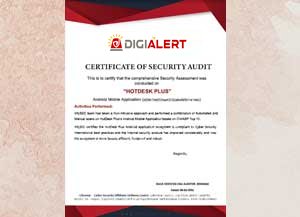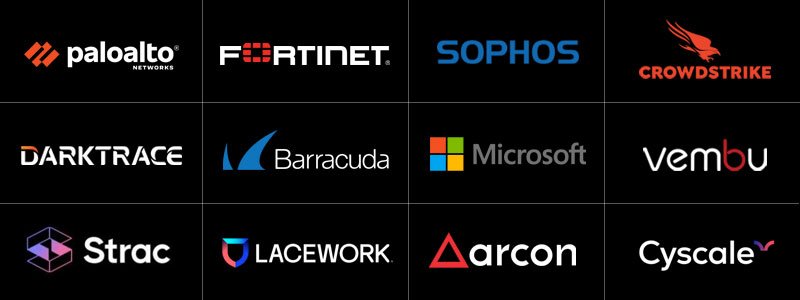Digital Forensics Training Overview
Computer forensics is a subfield of forensic science that is concerned with digital evidence and computer systems. Additionally referred to as digital forensics, it investigates crimes by studying hard drives, operating systems, and cloud storage. Computer forensics experts employ computer forensics to investigate cybercrime and a variety of civil cases, including data recovery and audit trails. A forensic analyst is responsible for both information security and legal challenges. Digital forensics began in the 1980s with the proliferation of personal computers. Consumer access resulted in an increase in illegal behavior
Know About Digital forensics
DigiAlert offers courses and programs developed in collaboration with industry leaders. Students can enroll in courses from anywhere in the world and on their own time. You can browse courses for free or pay a fee to obtain official credit for courses or degree tracks. Whether you're new to the profession or seeking a change in career direction, DigiAlert has you covered. You can acquire core abilities at your own pace and embark on a new path at any time.
Key Features
- Instructor-led live training for 50+ hours.
- 70% of training is hands-on.
- Career Development Training.
- Payment Options That Are Simple.
- Technical Assistance.
Digital forensics Training Syllabus
• Types and sources of digital Evidence
• Process, Goals, Principles of Digital Forensics
• E-Discovery & Digital Forensics
• Methodology for Digital Investigators
• Evidence Collection Techniques
Upcoming Events
Digital forensics Certification
Cybercrime is no through over with hackers and other external attackers. Almost every instance of financial fraud or employee misbehaviour contains a sizable amount of computer-based evidence. For more than four years, DigiAlert has provided expert computer forensics, cyber breach investigation, incident detection, and response services to clients. It has now unified its skills into a four-day hands-on training course titled Certified Digital Forensics Expert (CDFE). The entire program is driven by hands-on exercises and case studies to guarantee that all parts of digital forensics investigation, incident detection, and response are explained from start to finish using real-world scenarios.




Certify organization
Digital Forensics by DigiAlert Examiner training explains how to conduct a computer forensic examination in the proper manner. Students will learn to conduct forensically sound investigations by evaluating the scene, gathering and documenting all pertinent information, interviewing suitable persons, maintaining chain-of-custody, and writing a findings report.
The DDFE is able to build and maintain cost-effective security policies that are closely linked with business and industry requirements by taking a risk-based approach.
Get Placement by DigiAlerts
A computer forensics degree equips you to work as an expert in firms that are particularly vulnerable to network breaches or are concerned about them. While the majority of these employment are in law enforcement - both state and federal - you may also find opportunities in mid- to large-sized enterprises, crime laboratories, and large towns.
Several computer forensics job titles include the following:
- Computer Forensics Investigator
- Computer Forensics Technician
- Information Security Analyst
- Information Systems Security Analyst
- Forensic Computer Analyst
- Security Consultant
Digital forensics Training Features
- Increase your familiarity with incident response methods, computer investigation techniques, digital forensics laboratory work, and investigative reports.
- Consolidate your knowledge of wireless network forensics, wireless internet security and access processes, search warrants, and chain of custody.
- Investigate corporate espionage and countermeasures, as well as computer-related legislation and crimes.
- Learn how to use forensic techniques to recover picture files, how to recover deleted files, how to acquire data, how to duplicate files, and how to use steganography tools.
Digital forensics Training Benefits
By achieving the designation of Certified Computer Forensics Professional, you will be able to:
- Recognize the importance of computer forensics in today's business world.
- Assist an organization in preventing the occurrence of an incident
- Acquire fundamental forensic abilities that can be employed in a variety of circumstances.
- Increase your proficiency with forensic techniques and tools for detecting and responding to cybercrime.
- Develop into an internationally recognized digital forensics expert
Who should attend Digital forensics Training
• Incident response team members
• Security Operations Center (SOC) personnel
• System administrators
• Experienced digital forensic analysts
• Federal agents and law enforcement
• Red team members, penetration testers, and exploit
developers
• SANS FOR408 and SEC504 graduate
Skills u will gain after the course
- Recognize the significance of data management and the methods required to ensure its admission in a court of law.
- Create an investigative process for digital forensics
- Recognize techniques for focusing inquiries through the examination of different sources of evidence.
- Prepare for incident response effectively for both victim and suspect systems, including a grasp of the critical nature of network reconnaissance and network traffic analysis.
- Determine the existence of evidence of evidentiary value in a variety of sources, including network logs, network traffic, volatile data, and disc forensics.
- Recognize frequent malicious software activity regions and the characteristics of numerous malicious software file types
- Perform live response scenarios with confidence in intrusion investigation scenarios
Digital Forensics PreRequisites
It is recommended that you have some expertise in digital investigations and digital forensics.
To make efficient use of CERT STEPfwd, the following requirements must be met:
- Browsers that support HTML5 include Internet Explorer 9+, Chrome 4+, and Firefox 3.5+. A minimum of 384 Kbps Internet connection is required to provide downloads with a latency of no more than 230 ms.
- Configuration of the computer and network that enables access to streaming video from online sources
- A minimum client resolution of 1280 x 1024 is required to display the lab player properly.
Digital Forensics Learning Roadmap
What is the Digital Forensics Certification fee?

3 Month Package
- 10 GB Storage
- 100 GB Bandwidth
- Speed 500 Mbps
- DNS Automation
- Support Time 24 hrs

6 Month Package
- 10 GB Storage
- 100 GB Bandwidth
- Speed 500 Mbps
- DNS Automation
- Support Time 24 hrs

9 Month Package
- 10 GB Storage
- 100 GB Bandwidth
- Speed 500 Mbps
- DNS Automation
- Support Time 24 hrs




















 ISO/IEC 27001:2022
ISO/IEC 27001:2022 ISO/IEC 27001:2022
ISO/IEC 27001:2022 ISO/IEC 20543:2019
ISO/IEC 20543:2019 ISO/IEC/IEEE 29119-5:2024
ISO/IEC/IEEE 29119-5:2024 CSA Certificate
CSA Certificate Incorporation
Incorporation Makeinindia
Makeinindia Authorized partner
Authorized partner MSME Chennai
MSME Chennai digiALERT Tan
digiALERT Tan GST Chennai
GST Chennai Pancard
Pancard Amended GST
Amended GST